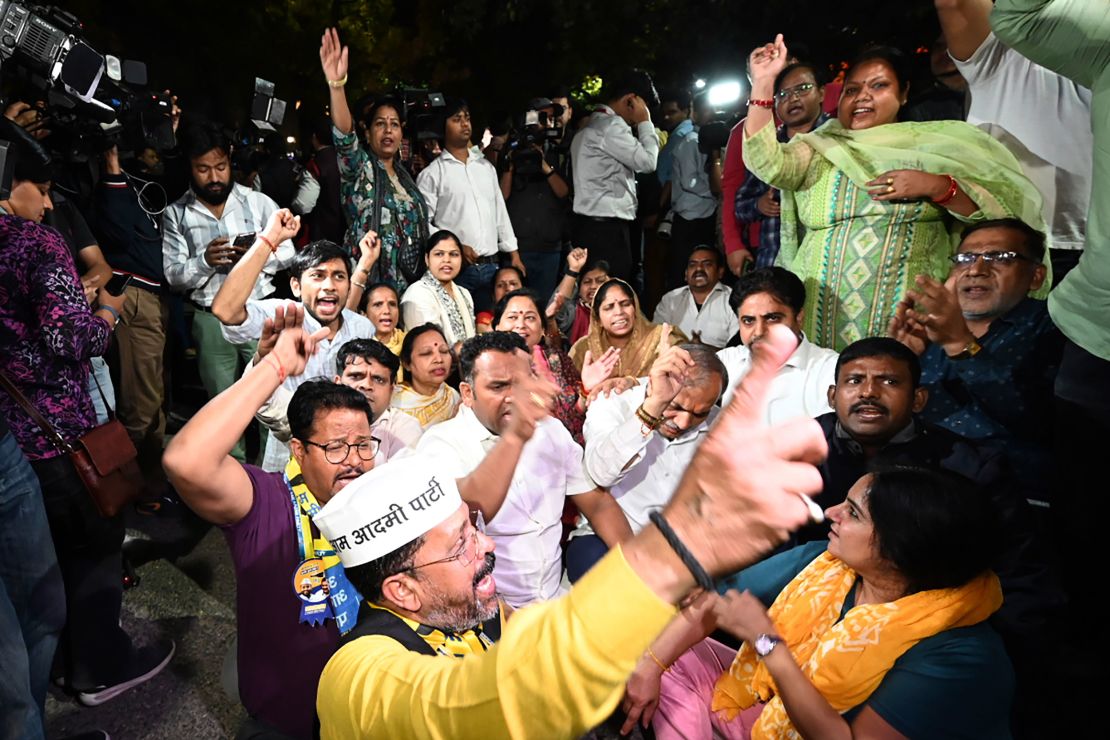Table of Contents
The Arrest and the Protest Call
The recent arrest of Arvind Kejriwal, the Chief Minister of Delhi and the national convenor of the Aam Aadmi Party (AAP), has triggered a significant political storm in India’s capital. The events leading to his arrest and the subsequent reactions have highlighted the complex dynamics of Delhi’s political ecosystem.
Kejriwal’s arrest was prompted by the AAP’s call for a “gherao” protest against the Enforcement Directorate’s (ED) actions related to the excise policy case. This protest call underscored the escalating tensions between the AAP and the BJP-led central government.
In response to the planned protest near Prime Minister Narendra Modi’s residence, the Delhi Police escalated security measures, implementing Section 144 of the CrPC in sensitive areas. While aimed at maintaining law and order, this move also raised concerns about freedom of expression and the right to protest. The arrest and its aftermath have drawn varied reactions, with AAP supporters condemning it as politically motivated and critics viewing it as necessary for public order. These events are likely to have a lasting impact on Delhi’s political landscape, shaping public sentiment and the dynamics between the AAP and the central government.
AAP’s Reaction and Political Fallout
The AAP’s strong stance against Kejriwal’s arrest, labeling it as political vendetta, reflects the deep-rooted ideological conflicts in Delhi’s political arena. The party’s allegations of misuse of investigative agencies for political gains have resonated with its supporters but also faced criticism from opposing factions.
The ED’s allegations against Kejriwal, including charges of soliciting kickbacks from liquor traders, have added fuel to the fire. Kejriwal’s steadfast denial of these charges and his counter-accusations against the central government has intensified the political rhetoric surrounding his arrest.
The scenes of AAP members being detained during their protest attempts near the prime minister’s residence underscore the charged atmosphere in Delhi. These incidents have not only captured media attention but also raised questions about the balance between security concerns and democratic rights.
BJP’s Response and Legal Challenges
On the other side, the BJP’s counter-protests demanding Kejriwal’s resignation highlight the entrenched divisions within Delhi’s political landscape. The accusations and counter-accusations between the AAP and the BJP have created a tense environment, with both parties vying for public support and legitimacy.
The legal battles ensuing from Kejriwal’s arrest, including court hearings and challenges to the ED’s actions, add layers of complexity to the unfolding drama. Kejriwal’s wife, Sunita Kejriwal, entering the public discourse with media statements and calls for transparency in the legal process, adds another dimension to the ongoing saga.
International Attention and Local Impact
Internationally, the attention on Kejriwal’s case reflects broader concerns about the rule of law and political freedoms in India. Statements from foreign entities urging a fair and transparent legal process highlight the global significance of this local political controversy.
As the legal proceedings progress and political tensions simmer, Delhi’s residents and observers are closely watching the impact of Kejriwal’s arrest on governance, public trust, and electoral dynamics. The unfolding saga serves as a litmus test for democracy and accountability in India’s vibrant but often contentious political landscape.
Conclusion
Arvind Kejriwal’s arrest has not only stirred intense political debates but also raised critical questions about the intersection of law, politics, and public interest. The ongoing developments in this case will undoubtedly shape the trajectory of Delhi’s political landscape and have broader implications for democratic norms and governance in India. The complexities and ramifications of this event underscore the challenges and responsibilities inherent in the democratic process, urging stakeholders to navigate these turbulent waters with transparency, integrity, and a commitment to upholding democratic principles.

1 Comment
Pingback: The alliance talks between BJP and SAD in Punjab fail - INPAC Times